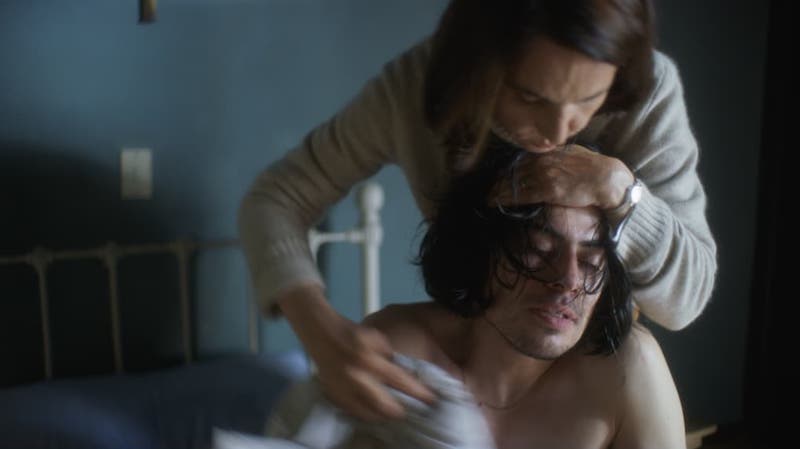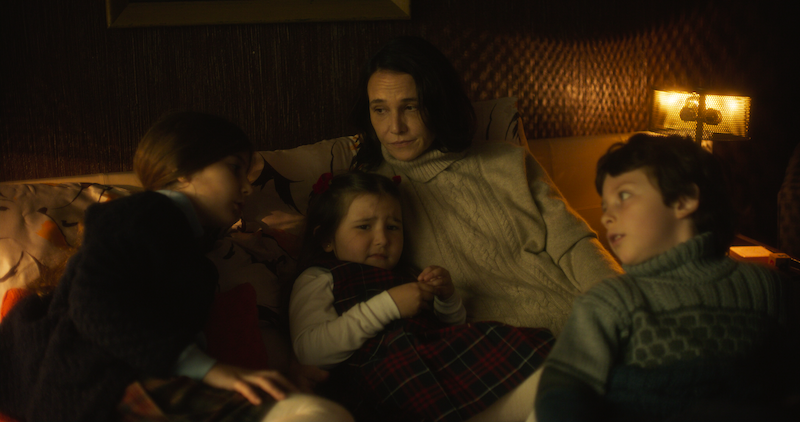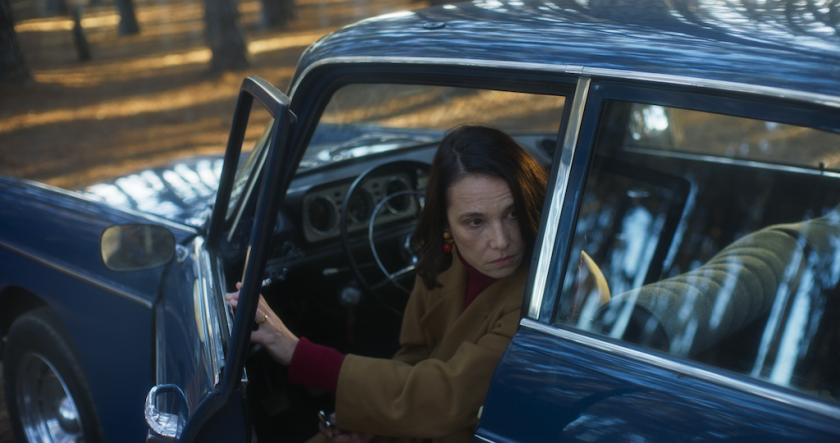It starts innocuously, with paint. A woman is sitting in a hardware store, studying a travel guide for colour ideas, while briefing the chap mixing her order. But then, amid the sound of the mixing machine, we hear a commotion on the street, a woman's voice cries “they are taking me”, doors are slammed. A dash of pink paint lands on the customer’s pristine blue shoe.
These opening few minutes of Manuela Martelli’s exceptional debut feature, from Chile, typify its singular tone and approach. This is the kind of economical, elliptical political thriller in which Latin cinema excels, building its scenario, character and dramatic implications incrementally, by stealth, suggesting threat by innuendo, slowly creating a pervasive atmosphere of paranoia and fear.
In 1973 the Chilean military orchestrated a bloody coup against Salvador Allende’s socialist government. Three years later, Pinochet’s cruelly repressive dictatorship has tightened the screws on the population. To oppose the regime is incredibly dangerous; many are choosing to turn a blind eye, to attempt a ‘normal’ life. One such is wealthy middle-class Carmen (Aline Küppenheim), who is busily renovating her family’s summer beach house, working alongside the builders, and hosting when her husband, children and grandchildren come to visit from the capital, Santiago. But then a local priest and friend asks for an unusual favour: to tend the gunshot wound of a young man, who he describes as a thief whose only crime is poverty.
One such is wealthy middle-class Carmen (Aline Küppenheim), who is busily renovating her family’s summer beach house, working alongside the builders, and hosting when her husband, children and grandchildren come to visit from the capital, Santiago. But then a local priest and friend asks for an unusual favour: to tend the gunshot wound of a young man, who he describes as a thief whose only crime is poverty.
Carmen is a good soul, who donates clothes to the seaside locals and reads to blind people in the Father’s congregation. She quietly understands that the priest hasn’t been honest with her, that Eíias (Nicolás Sepúlveda, pictured above with Küppenheim) is a dissident on the run from the State. She helps anyway, putting herself at risk of becoming a target.
As a young actress in 2004, Martelli appeared – alongside her star here, Küppenheim – in the landmark Chilean film Machuca, by Andres Wood, which focussed on the days leading to the coup, then the event itself; with her first film as a director, she’s returned to the subject with thrilling style and intelligence. While Wood attacked the subject in an open, direct manner, Martelli’s approach has a greater affinity with that of the Argentine director Lucrecia Martel, employing mystery and suggestion, infusing daily dynamics with chilling unease.
Tonally, this most reminds me of Martel’s The Headless Woman, which cleverly reflected on the moral malaise of her own country’s dictatorship through a conventional tale of a woman’s attempt to get away with a hit and run. That film, too, had the psychological demands on a somewhat fragile woman at its compelling centre, and the bustle of family life in the background.
 At the same time, Martelli invests her slow-burn action with some wonderful Hitchcockian touches, whether a bravura visual, or the cranking tension of a mise en scene, all sumptuously photographed by Soledad Rodríquez and accompanied by Mariá Portugal’s pulsing, humming, sinister electronic score. There are numerous impressive sequences, as Carmen attempts to contact Eíias’s fellow dissidents on his behalf, using their complex rules of engagement: a curfew check point, Carmen praying under her breath as her documents are checked; the third degree from a stranger in a bar, as he wipes mustard from her mouth; a home visit from a member of the Yacht Club that is synonymous with government spies in the area.
At the same time, Martelli invests her slow-burn action with some wonderful Hitchcockian touches, whether a bravura visual, or the cranking tension of a mise en scene, all sumptuously photographed by Soledad Rodríquez and accompanied by Mariá Portugal’s pulsing, humming, sinister electronic score. There are numerous impressive sequences, as Carmen attempts to contact Eíias’s fellow dissidents on his behalf, using their complex rules of engagement: a curfew check point, Carmen praying under her breath as her documents are checked; the third degree from a stranger in a bar, as he wipes mustard from her mouth; a home visit from a member of the Yacht Club that is synonymous with government spies in the area.
Surrounded by constant references to murders and disappearances, Carmen increasingly looks over her own shoulder, the film fashioning the paranoia that was endemic of the Seventies dictatorships, so intense that it starts at home: perhaps the most discomforting scenes involve Carmen’s doctor husband and his friends, entitled reactionaries happy to go along with their military patrons. It doesn’t hurt that the director has at her disposal top-class actors – Alejandro Goic, Antonia Zegers, Germán De Silva – who, you might say, specialise in creeps.
Küppenheim is superb as the pill-popping, chain-smoking, fidgety heroine, whose actions convey a certain kind of instinctive bravery, but whose amateur efforts to help may do more harm than good.















Add comment